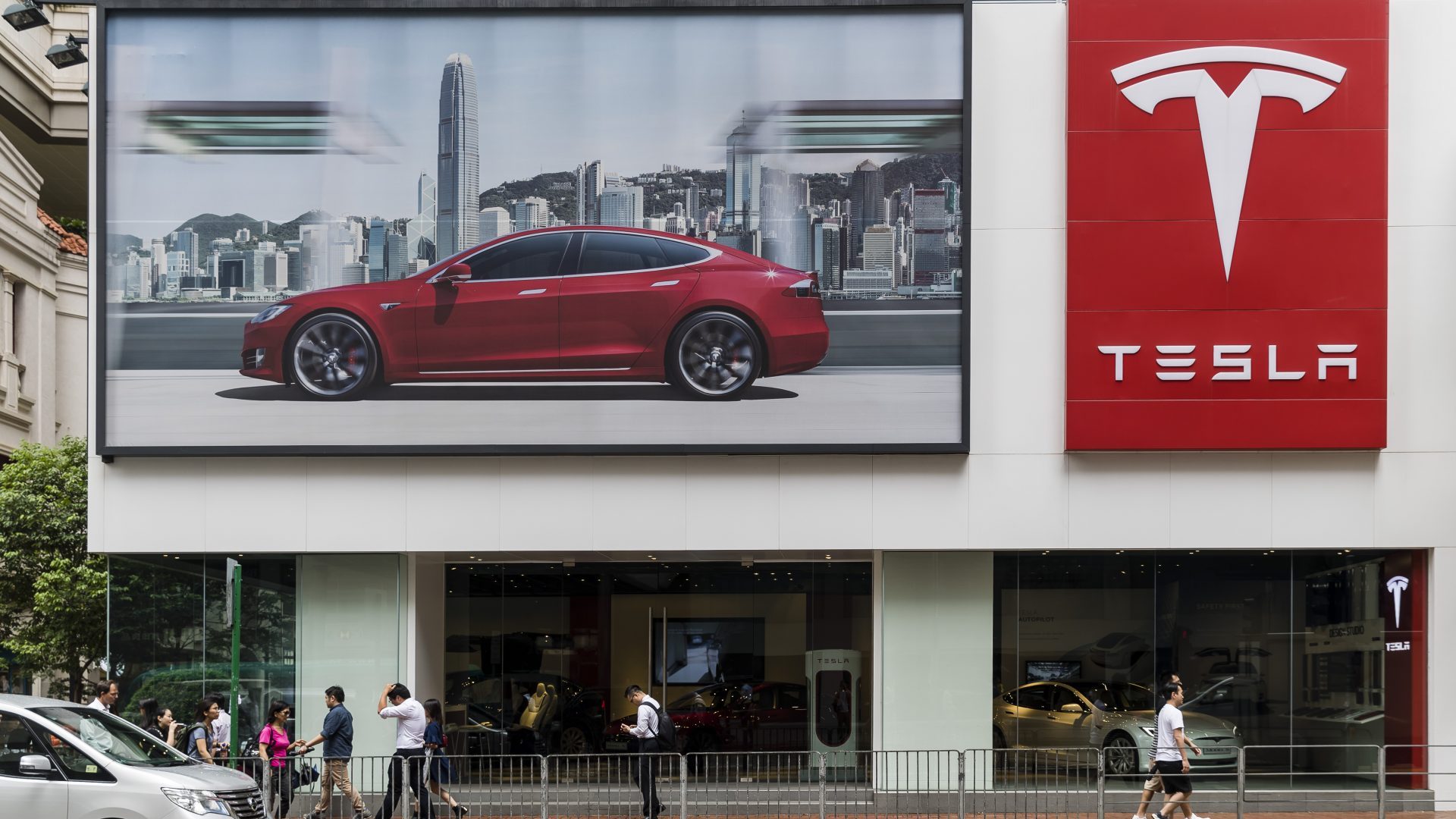

We may earn revenue from the products available on this page and participate in affiliate programs. Learn more ›
Update, 3:26pm: A Tesla spokesperson told The Drive that the claims referring to a 70-percent drop in sales are “wildly inaccurate” and “off by a significant margin.” However, the automaker did not disclose regional or monthly sales figures. The original story has been updated accordingly.
Update, 5:55pm: The same spokesperson clarified that the company’s plans for a Gigafactory in Shanghai were already made a year ago and not in direct response to tariffs. The original story has been updated accordingly.
In the midst of the ongoing trade war, Tesla sales in China reportedly plunged a whopping 70 percent in October compared to the same month a year ago, reports Reuters. Citing a China Passenger Car Association official, the Silicon Valley electric automaker only sold a total of 211 cars in the populous country during the entire month. Considering China is now the globe’s largest car market, that ain’t good at all.
Tesla, which currently imports all of its products to China, is blaming its poor Chinese sales on high tariffs imposed as part of President Trump’s ongoing trade war with the Asian nation. Back in July, Beijing raised tariffs on cars imported from the U.S. to 40 percent.
The sales slump isn’t exclusive to Tesla though as Chinese auto sales, in general, have slowed down significantly since the middle of 2018, marking the country’s first annual sales decrease in nearly 30 years.
“This is wildly inaccurate,” a Tesla spokesperson told The Drive. “While we do not disclose regional or monthly sales numbers, these figures are off by a significant margin.”
In response, Tesla CEO Elon Musk is planning to build a new Gigafactory in Shanghai—the first facility to be located outside of the U.S.—so the company can sell cars there while bypassing the heavy tariffs imposed on California-built Teslas. Just last month, the company finalized the purchase of a 534-square-mile plot of land where the $2 billion factory will be located.
The Tesla spokesperson later told The Drive that the new Gigafactory was not planned in direct response to the trade war but “actually in the works a year ago, before the tariffs occurred.”
Last week, Musk reportedly announced a price cut to the Model S and Model X in China in an effort to compensate for the price hikes brought on by tariffs, says CNBC.
“We are absorbing a significant part of the tariff to help make our cars more affordable for customers in China,” Tesla told Reuters.
